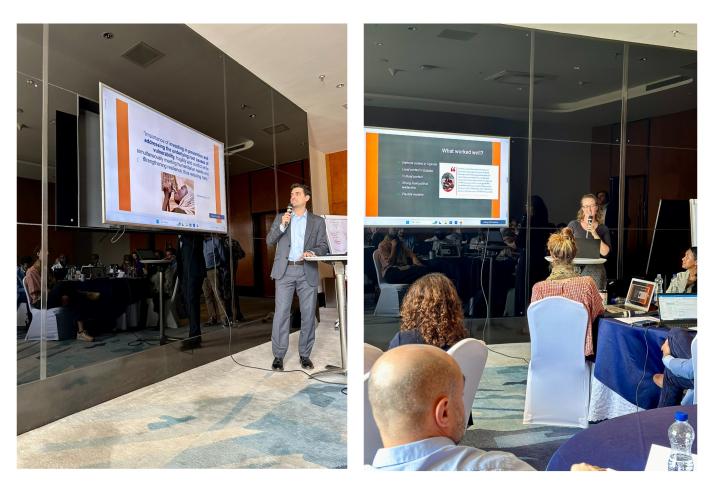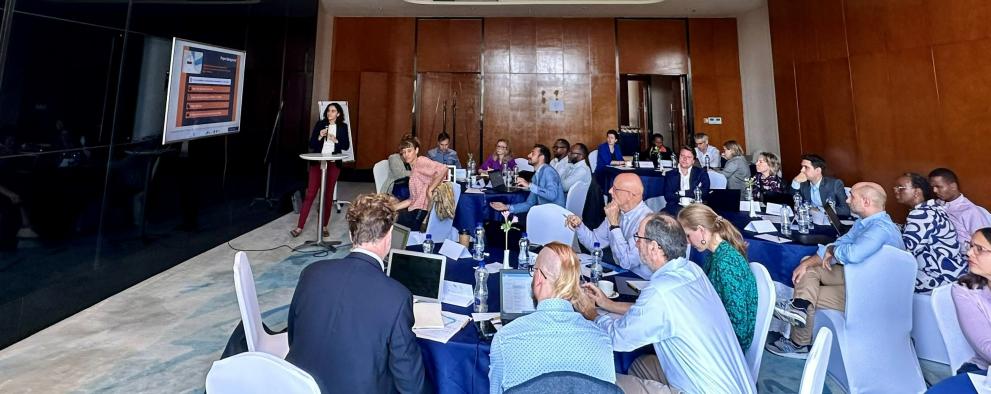
Highlights from this year’s Technical Meeting in Addis Ababa
From November 14 – 16, the second edition of a EUTF HoA technical meeting took place in Addis Ababa, Ethiopia. The gathering brought together about 34 in person participants from EU Delegations in the Horn of Africa including Burundi, Djibouti, Ethiopia, Kenya, Somalia, South Sudan, Sudan, Uganda, and the Trust Fund Team from Brussels, to take stock of the major achievements and lessons learned of 8 years of operations under the Trust Fund since its creation in 2015.
Navigating Challenges, Lessons Learned and Achievements Explored
The meeting provided a space for sharing and discussing best practices aligning with this year’s theme: “Inspiring successes and lessons learned are evidenced and passed on to new programming ”.
The event delved into the results of the EUTF interventions, sharing innovative implementation approaches, flexibility in responding to contextual specificities, and operations in fragile environments. Participants took stock of successful projects set to continue post-EUTF, while also focusing on effective communication and knowledge-sharing strategies.
Representatives from Ethiopia, Uganda, and Sudan Delegations held presentations to showcase concrete examples of lessons learned, ensuring continuity of successful projects, and encouraging collaboration between EU Services (e.g. INTPA-ECHO-FPI).
Moving forward while learning from the past
Since its inception, the Horn of Africa (HOA) window concluded more than 400 contracts for a budget of € 1.8 B. This includes 229 operational projects with 130 projects currently in implementation, covering 8 countries with national portfolios with 3 additional countries through regional portfolios. For a comprehensive overview of the EUTF’s operational portfolio, please consult the EUTF's Annual Report.
The meeting was an opportunity to collectively reflect on Monitoring, Evaluation, Learning and Communication (MEL+C) initiatives, guided by a Roadmap conceived during last year's gathering (Nairobi 2022). This Roadmap is aimed at enhancing the capture of results and learning processes to be undertaken until the conclusion of the Trust Fund in December 2025.
Enrique, EU Trust Fund Manager for the Horn of Africa window emphasized the importance of documenting key lessons learned:
”We see a strong continuity of EUTF actions through new instruments. The importance now is to provide evidence of our achievements, learn from failures and collect our main lessons learned, to be integrated into future programming”.
While Isabelle, from the EUTF team in Headquarters highlighted the importance of the legacy of the EUTF:
“The EUTF footprint is already in NDICI, but we need yet to explore further ideas on how to best showcase our achievements and lessons learned, ensuring sound knowledge management of the EUTF's legacy for future programming/actions".
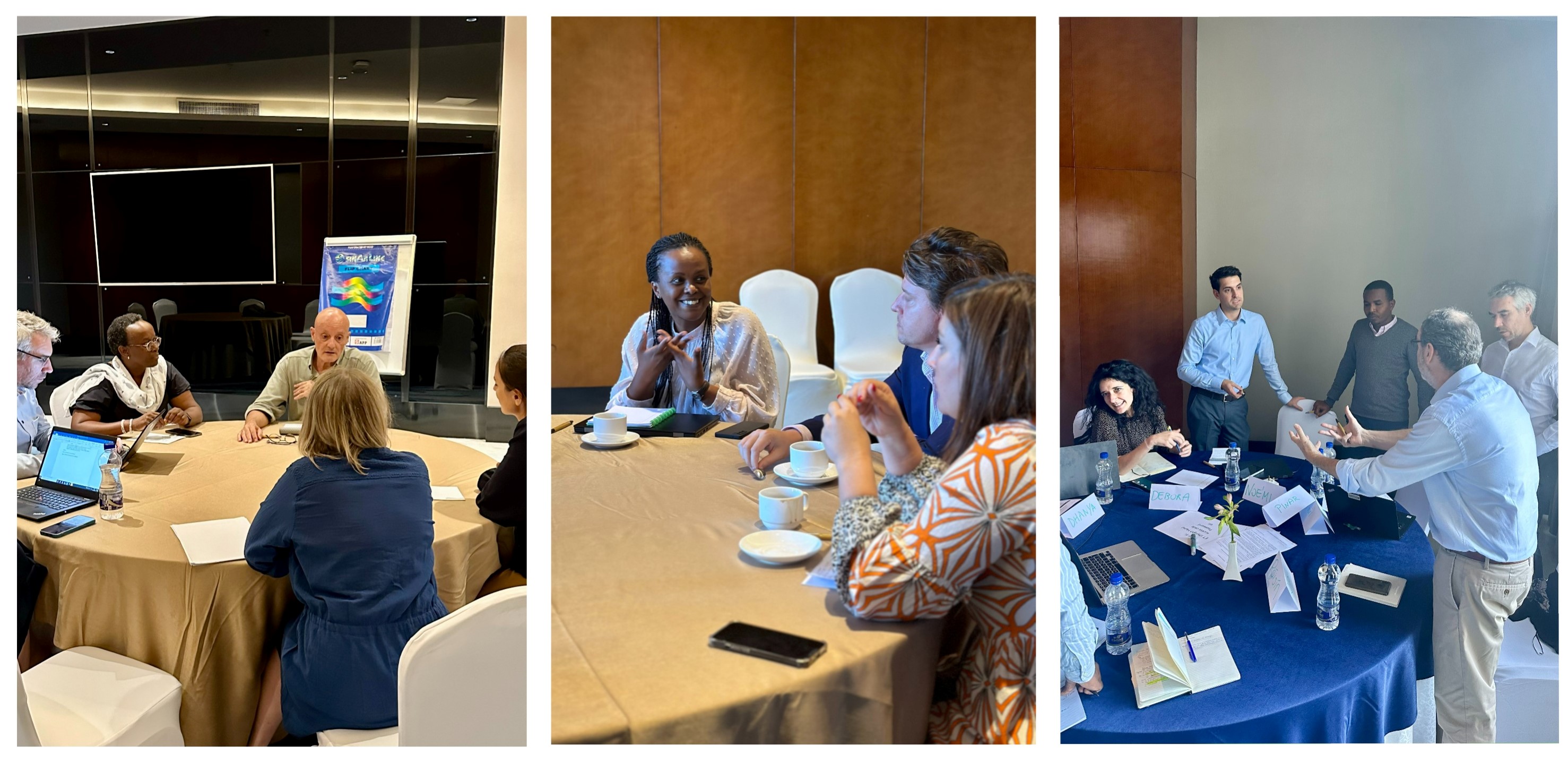
Field Trip to test the Outcome Harvesting Technique - a learning-by-doing journey
The highlight of this year’s technical meeting was a field visit to test with colleagues a different way of evaluating results of an intervention.
The technique of ‘outcome harvesting’ actively engages participants in gathering evidence to establish plausible connections between observed changes and the intervention's contributions. Instead of a typical forward-looking assessment, outcome harvesting starts by collecting evidence of achieved outcomes and then traces backward to determine the intervention's role and contribution in bringing about change.
As Innocent, from the Center for Evaluation and Development (C4ED), explained :
"Outcome Harvesting provides project managers and implementers a different way of viewing their work and achievements".
During the field visit, participants actively engaged with stakeholders involved in the Leather Initiative for Sustainable Employment Creation (LISEC) project, implemented by UNIDO and funded by the EUTF. This hands-on experience allowed participants to directly interact with beneficiaries and attempt to collect information on what has changed, discuss outcomes, and identify new ones.
Exchanges were centered in the leather production value chain, including traders, tanneries, and Micro, Small, and Medium-sized Enterprises (MSMEs). This included managers and employees of two tanneries in Addis, as well as a group of youth beneficiaries from Modjo, that recently formed into an MSME Cluster, to manufacture leather goods.
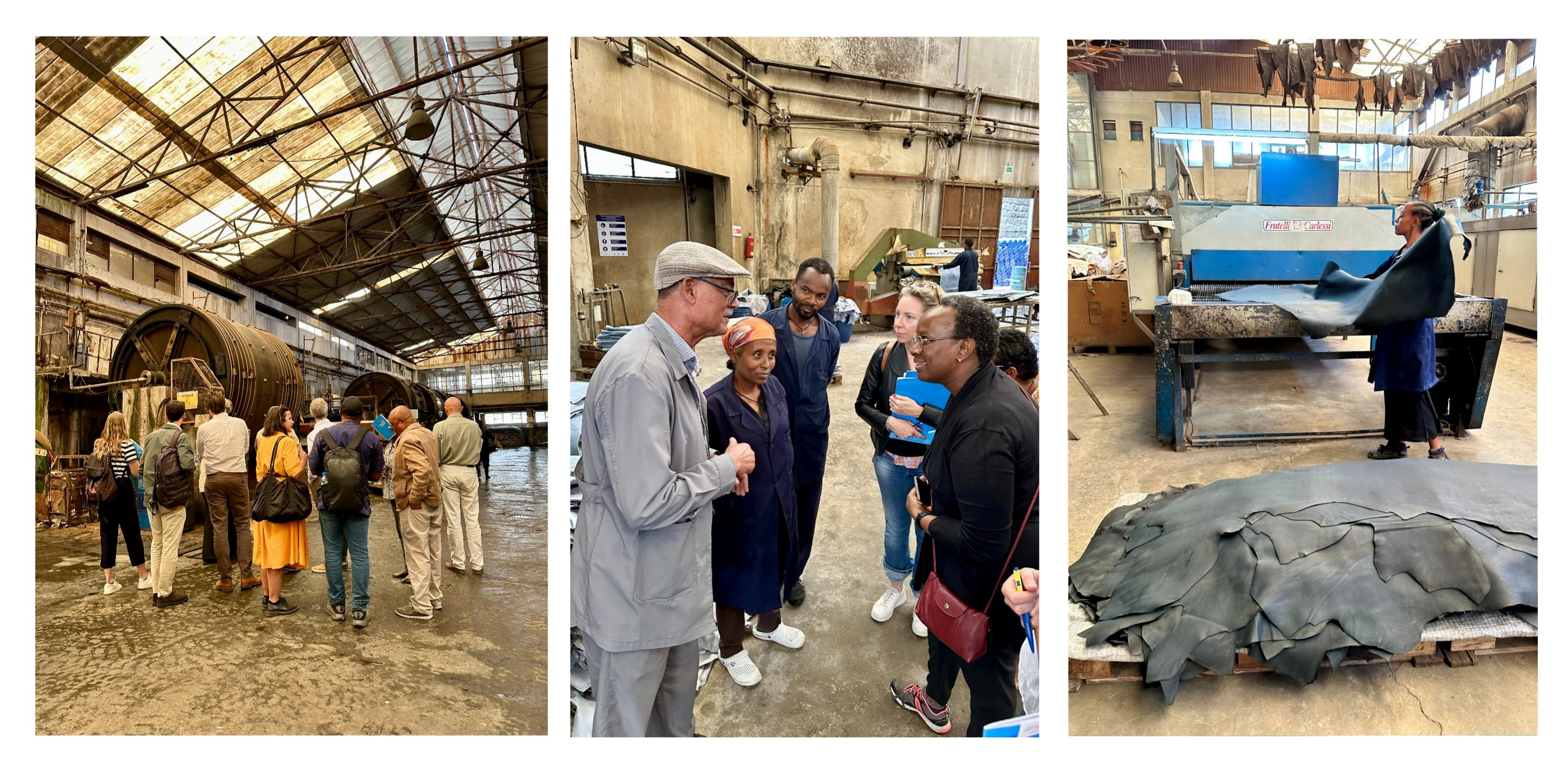
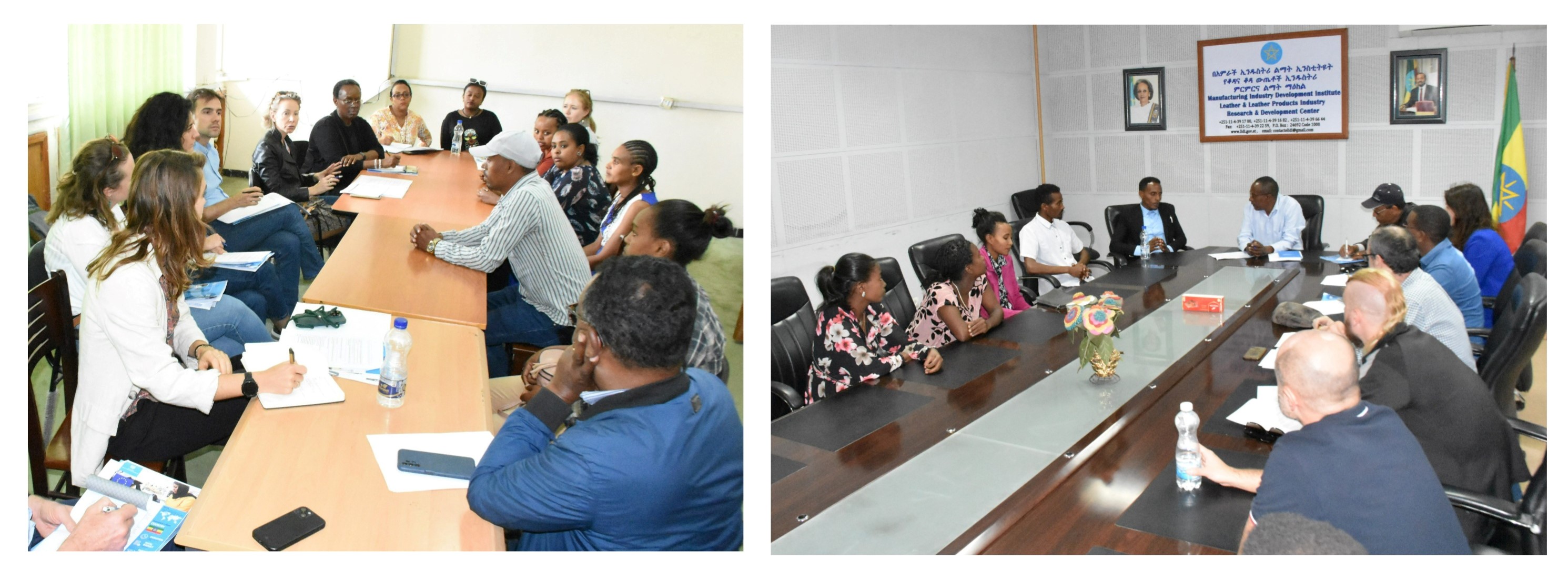
Reflecting on the outcome harvesting technique and the field visit, Elisabeth from the EU Delegation in Kenya shared her perspective:
‘’The session on outcome harvesting, including the field visit to two tanneries, was very useful since we can now apply it during our everyday project management work and during project monitoring activities. Especially for EUTF projects, often implemented in difficult environments, this technique seems to be very relevant to dig deeper into why and how certain outcomes are achieved (or not!).’’
Róisín, from the EU Delegation to Uganda also highlighted the utility for her project monitoring, noting:
’’The practical exercise of testing outcome harvesting techniques during the joint field visit was eye-opening. The experience has given me the tools needed to incorporate this new approach in my own future field-monitoring visits to our EU-funded projects in Uganda, and I look forward to employing it!’’
Konstantin, from the EUTF team in Headquarters expressed that the strong expectations from EUTF colleagues for a cross-delegation field visit were reached:
“Operational colleagues were placed in a real-life situation to critically assess the outcomes and gather new ones through the innovative lens of the outcome harvesting, in a strategic value chain sector for Ethiopia, all three relevant issues in just one field visit. An extremely useful experience!”.

The EUTF Team in HQ would like to thank the EUD in Addis for the support received making possible the development of this technical meeting.
We also extend our thanks to the MLS for the support with the organisation of the event and content preparation, and to UNIDO, C4ED and the REF for their interventions. Special thanks to the companies visited ELICO Awash tannery and Batu tannery, to the Leather & Leather Products Research and Development Centre and the youth groups from Modjo for their generosity in sharing information and knowledge.
And last but not least to the participants, programme managers from all the EUDs, for their decisive interventions, interest, motivation and contributions from their interesting experiences in the field with the EUTF.
Details
- Publication date
- 15 December 2023
- Author
- Directorate-General for International Partnerships
- Region and Country
- Horn of Africa

